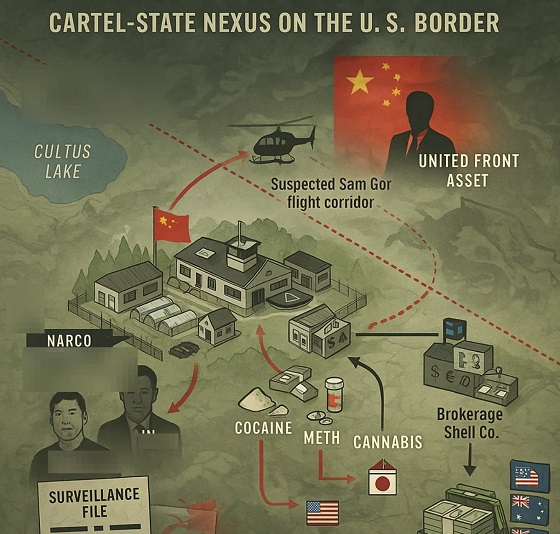Crime
Red Deer man arrested for multiple child porn offences

From the Alberta Law Enforcement Response Team ALERT
Red Deer man arrested for child luring
A joint investigation between Internet Child Exploitation (ICE) units in Saskatchewan and Alberta has led to the arrest of a Red Deer man. The suspect was allegedly grooming and luring a young Regina girl.
ALERT’s ICE unit arrested the 33-year-old Red Deer man on January 21, 2021. Jeremie Raphael Roy was identified by Saskatchewan ICE as allegedly sharing sexually explicit materials and luring a young girl via a social media application. The offences date back to October 2019.
“Great work by the ICE investigators in Saskatchewan and Alberta to keep kids safe,” said Staff Sergeant Shawn Stubbs, Saskatchewan ICE Coordinator.
“The internet knows no borders, however, ICE units from around the world routinely collaborate to help protect children and hold predators accountable,” said Sergeant Randy Poon, ALERT ICE.
The investigation is ongoing pending the forensic examination of computers and electronic devices seized from the suspect’s home.
Roy has been charged with the following offences:
- Invitation to sexual touching;
- Child luring;
- Making child pornography;
- Possess child pornography;
- Access child pornography; and
- Making sexually explicit material available to a child.
Anyone with information about this investigation, or any child exploitation offence is encouraged to contact local police or cybertip.ca.
The Saskatchewan ICE Unit is comprised of investigators from the RCMP, Regina Police Service, Saskatoon Police Service, and Prince Albert Police Service. Their mandate is to investigate crimes involving the abuse and/or exploitation of children on the Internet.
ALERT was established and is funded by the Alberta Government and is a compilation of the province’s most sophisticated law enforcement resources committed to tackling serious and organized crime.
Crime
RCMP warns Central Alberta property owners of paving contractor scams

News release from Innisfail RCMP
Innisfail RCMP is warning the public about asphalt-paving company scams in the area. Out-of-town companies, claiming to be pavers, are offering their services at an inexpensive rate. Residents are paying for the service up-front and then receiving a sub-standard job or being asked to pay more than the original quote. These companies, who will sometimes also offer roof sealing services, will then disappear from the area before people realise they have been scammed. These individuals have been known to provide few details of their identity and utilize non-descript vehicles rarely bearing commercial logos. Some of these fraudulent companies do have logos to appear legitimate.
Innisfail RCMP urges property owners to beware of out-of-town companies offering such services. The contractors claim to have leftover asphalt from previous jobs and promise to provide quality services. However, the product used is believed to be cold, recycled asphalt or a gravel and oil mixture with no lasting properties. This results in the asphalt falling apart once it is driven on. We would like to remind residents to exercise caution when retaining contractor services and, if it sounds too good to be true, then it probably is. Citizens are advised to be cautious of any cold approach or unsolicited offers from paving companies.
Residents should be weary of any contractors who:
- Come to your door saying they are working in the area and offering a deal for leftover asphalt
- Drive vehicles bearing no business names or logos
- Pressure you into making a quick decision or refuse to take “no” for an answer
- Ask for a down payment to buy materials
- Refuse to give you a written quote with their business name, physical address and outlining the services they will provide prior to completing the work
Here are a few tips to avoid falling prey to scammers:
- Before agreeing to a contract with a person who comes to your door, get names of their previous customers and verify that they were satisfied with the work.
- Do some research on the company with either the Better Business Bureau in Alberta, with the Consumer Investigations Unit, with your local Rural Crime Watch or on social media sites.
- Make sure to obtain a written quote from the contractor that includes the full business name, full address, phone number, GST number and provincial and municipal license numbers, if applicable.
- Ensure the quote you receive gives details such as the quantity and the quality of materials being offered.
- Obtain quotes from local suppliers as a form of comparison.
If you are approached by a paving company and you are concerned that it is suspicious, please do not hesitate to contact the RCMP.
If you, or anyone you know, has fallen victim to this scam, contact the Innisfail RCMP Detachment at (403) 227-3342, or your local police. If you wish to remain anonymous, you can contact Crime Stoppers at 1-800-222-8477 (TIPS) online at www.P3Tips.com or by using the “P3 Tips” app available through the Apple App or Google Play Store.
Crime
Veteran RCMP Investigator Warns of Coordinated Hybrid Warfare Targeting Canada

 Sam Cooper
Sam Cooper
Central to this strategy is fentanyl—a substance whose reach now extends far beyond Canadian borders.
Fentanyl overdoses. Dirty money flooding real estate. Election interference. Foreign-backed antisemitism igniting across Canadian campuses. These are not isolated crises, warns Calvin Chrustie, a veteran RCMP national security and transnational crime investigator. They are interlinked weapons in an accelerating campaign of hybrid warfare targeting Canada—one that is hollowing out state institutions, fracturing social cohesion, and damaging our alliances. In the view of Chrustie, like other North American experts recently interviewed by The Bureau, adversarial regimes are exploiting Canada’s systemic vulnerabilities to destabilize the country from within, with consequences extending into the United States, Australia, the United Kingdom, Taiwan, Japan, and beyond.
In a sweeping interview with the Macdonald-Laurier Institute, Chrustie laid out a sobering account of how foreign states—chiefly China and Iran—are combining their intelligence capabilities with organized crime networks and proxies such as Mexican cartels to exploit Canadian systems. The Bureau has analyzed Chrustie’s comments and connected them to broader findings in its investigations into transnational crime and state-sponsored influence operations.
At the heart of Chrustie’s warning is a shift in how adversaries like China and Iran operate. No longer relying solely on spies or cyberattacks, they are weaponizing organized crime—leveraging fentanyl trafficking, corruption, and influence operations to destabilize democracies.
“Hybrid warfare is the blending of military and non-military means to weaken or destabilize a target,” Chrustie explained. “For hostile states, transnational crime is a tool—just like cyberattacks or disinformation. China, Russia, Iran, North Korea—the CRINKs—use TOC to raise money, create chaos, and undermine our institutions. TOC is no longer just criminal—it’s geopolitical.”
Fentanyl, in this context, is not only a public health catastrophe but a deliberate weapon.
“It’s about destabilizing communities, overwhelming public services, and hollowing out social cohesion,” he said. “Just like the Soviets used propaganda and the KGB used disinformation, modern adversaries use drugs, money laundering, and crime networks to erode their adversaries from within.”
This erosion now extends beyond physical harms into the social and political realm. Chrustie pointed to radical protest movements and the rise in antisemitic incidents on Canadian campuses as evidence of convergence between TOC and foreign influence operations.
“These aren’t disconnected trends,” he said. “The same threat actors behind fentanyl and money laundering are often involved in radicalization efforts. Iranian networks, for example, have long been tied to money laundering and extremist financing. And those networks are not operating in isolation. They’re aligned with China and the Mexican cartels.”
Chrustie argued that radical activism and identity-based polarization are being amplified not just by ideology, but by illicit foreign-backed financing and digital manipulation. “We’re talking about convergence,” he said. “These networks exploit every vulnerability—from public health to political discourse. Failing to connect the dots between TOC, extremism, and foreign interference means we’re always reacting too late.”
Central to this strategy is fentanyl—a substance whose reach now extends far beyond Canadian borders. “There’s no denying the scale of fentanyl production in Canada. It far outpaces our internal consumption,” he said. “We know Canadian labs are supplying Australia in large quantities. And we don’t know how much is crossing into the U.S.—because we’re not meaningfully tracking it. That lack of visibility alone is a serious national security concern.”
Seizures at the border are not the solution, Chrustie argued, because they’re not the full picture. “The U.S. has robust systems for this. Canada doesn’t,” he said. “So pointing to low seizures as proof of safety is misleading—it really just tells us what we’re not seeing.”
And what we’re not seeing, he says, includes deeply compromised infrastructure. “They exploit Canada’s weaknesses, especially in places like Vancouver, where strategic assets such as ports, shipping companies and supply chain infrastructure are key hybrid warfare targets,” he said. “The intent is to target North America through Vancouver-based assets, because it’s a lower-risk operating environment.”
The financial flows enabling this system are equally opaque—and equally dangerous. Chrustie cited the HSBC cartel laundering scandal, which led to a $1.9 billion U.S. settlement, as a historic warning that was never heeded. “The same cartel networks that emerged through the HSBC probe are engaged in Canada today,” he said.
“At one point, more encrypted communication companies linked to TOC and terrorist financers were based in Vancouver than anywhere else in the world,” he added. “These platforms were used globally—by cartels, arms traffickers, terrorists, state proxies. That tells you all you need to know about how Canada is perceived by adversaries.”
So why is Canada such a prime target? Chrustie identifies four layers of failure: strategy, structure, systems, and culture.
“We lack a cohesive, public national security strategy,” he said. “Unlike the United States or Australia, Canada doesn’t clearly define TOC as a strategic national threat. We don’t have a single, unified doctrine coordinating our federal agencies—police, intelligence, border services, foreign affairs. And TOC thrives in those gaps.”
“Our institutions are siloed,” he continued. “Policing is on the front line, but CSIS, CBSA, military and CSE aren’t always integrated. Right now, the RCMP is expected to shoulder most of the burden. But that’s unsustainable. We need an all-agency model.”
Canada’s legal and regulatory systems are another weak point. “Our legal system is designed for a domestic, rule-of-law environment. It’s ill-suited to confront global adversaries who don’t play by those rules,” Chrustie said. “Disclosure rules from Stinchcombe, Charter constraints, and evidentiary burdens mean that complex prosecutions often fall apart or never proceed.”
Finally, Chrustie warned that Canadian political culture is its most underappreciated vulnerability. “Canadians are culturally indifferent to national security,” he said. “We’ve taken a maternalistic approach—shielding the public from harsh realities, hoping to avoid panic or xenophobia. But that silence has allowed foreign actors to operate here with little resistance.”
“The historical paternalist approach of governments and bureaucrats—‘we won’t discuss these issues in public, we are the experts’—that thinking is outdated,” he said. “China, Russia, Iran and North Korea are the biggest fans of that mindset.”
Asked what a real solution looks like, Chrustie offered a sweeping and urgent framework: a national strategy naming hostile states and TOC as geopolitical threats; centralized agency coordination; intelligence-led disruption operations with allies abroad; and legal reforms enabling proactive countermeasures.
“We either need carve-outs with enhanced powers for TOC-related and foreign threat investigations—or we rely more on foreign-facing disruption efforts and accept that prosecutions are secondary,” he said.
He also emphasized grassroots engagement. “The solutions are in the communities, not in the siloed offices of governments,” Chrustie said. “We need to engage business leaders, civic organizations, educators, and diaspora communities. We need to build national resilience—not just enforce laws after the damage is done.”
His closing warning was as stark as his opening diagnosis.
“Canada is a saturated and vulnerable target,” he said. “And until we stop treating this as a criminal justice problem and start treating it as an integrated national security emergency, we will continue to lose ground.”
“There is no room for spectators.”
The Bureau is a reader-supported publication.
To receive new posts and support my work, consider becoming a free or paid subscriber.
Invite your friends and earn rewards
-

 Alberta2 days ago
Alberta2 days agoPremier Smith seeks Alberta Accord: Announces new relationship with Ottawa
-

 Energy2 days ago
Energy2 days agoIt’s time to get excited about the great Canadian LNG opportunity
-

 Crime2 days ago
Crime2 days agoInside B.C.’s Cultus Lake Narco Corridor — How Chinese State-Linked Syndicates are Building a Narco Empire in Canada
-

 International2 days ago
International2 days agoIce Surprises – Arctic and Antarctic Ice Sheets Are Stabilizing and Growing
-

 Energy2 days ago
Energy2 days agoIs the Carney Government Prepared to Negotiate a Fair Deal for the Oil, Gas and Pipeline Sectors
-

 Alberta2 days ago
Alberta2 days agoEnergy projects occupy less than three per cent of Alberta’s oil sands region, report says
-

 Health2 days ago
Health2 days agoJay Bhattacharya Closes NIH’s Last Beagle Lab
-

 Daily Caller2 days ago
Daily Caller2 days agoMisguided Climate Policies Create ‘Real Energy Emergency’ And Permit China To Dominate US


